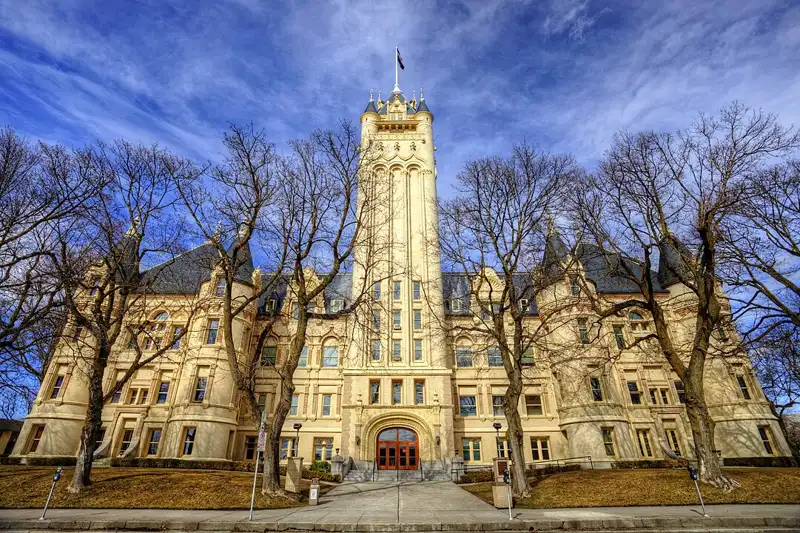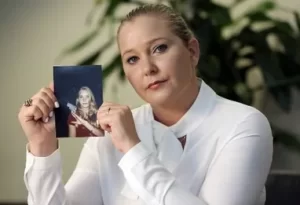Photo: Spokane County Courthouse; via Wikipedia.
A Spokane jury has ordered Washington State to pay $42 million to a woman the state failed to protect from years of childhood sexual abuse, The Washington State Standard first reported.
The payout in Jessica Hilton’s case adds to the state’s growing financial liability for misconduct ranging from wrongful terminations to prison deaths and mishandled child welfare cases.
Washington’s payouts climbed from $72 million in fiscal year 2018 to about $500 million in the fiscal year that ended June 30. Since July, the state has already paid nearly $89 million, not including Hilton’s award. Court rulings in recent years have expanded liability and Washington has no cap on damages, unlike many states. Defense costs for the state have also ballooned into tens of millions of dollars annually.
Hilton’s lawsuit stems from the 1990s. Despite the 1990 conviction of her stepfather, Raymond Mashtare, for raping her sister, the Department of Corrections and Child Protective Services allowed him back into Hilton’s life. Both agencies declined comment, saying only that they are reviewing the jury’s decision and considering legal options. The state can appeal.
Hilton’s lawyers said she had been willing to settle for under 10 percent of the eventual verdict, but the state offered less than $1.5 million. “Who is doing the risk adjustment for the state of Washington?” asked one of her attorneys, who previously worked for the state attorney general’s office. He expects the state to appeal.
The Case
Mashtare was ordered to serve more than four years in prison but remained out on a suspended sentence under supervision, sex offender treatment, and conditions such as staying away from children without another adult present. Hilton’s mother, who struggled with alcohol use disorder, was assigned as his chaperone. At times, she left Mashtare in charge of her daughters.
Court documents show that Child Protective Services, now the Department of Children, Youth and Families, was aware he could be living with a victim of his crime. Despite his history of sexual abuse, the Department of Corrections permitted Mashtare to spend time with his stepdaughters and did not share information that might have forced his incarceration.
Hilton’s lawyers said this negligence enabled years of abuse by Mashtare and others. The state argued he did not technically violate the conditions of his supervision and thus had no reason to return to court. In 1998, Hilton’s mother told Child Protective Services she saw Mashtare molest Hilton. Hilton also disclosed abuse from two years earlier but feared her mother would blame her.
Nevertheless, CPS left Hilton in the home, concluding she faced little or no risk. Prosecutors did not charge Mashtare for the alleged abuse of Hilton. The state later claimed that investigators exceeded legal requirements in their referrals and did their due diligence.
The Verdict
After a nearly month-long trial in Spokane County Superior Court, a jury awarded Hilton $42 million, assigning 70 percent of the negligence to Child Protective Services and 30 percent to the Department of Corrections. A judge finalized the verdict at the end of August.
One attorney said he was not surprised by the magnitude of the verdict, explaining that such outcomes occur “when people hear the facts and understand the profound suffering that our community and humans go through because of governmental ineptitude.” He added, “When you have a system that’s destroying lives, there needs to be accountability.”
In her statement after the verdict, Hilton spoke to fellow survivors of childhood abuse. “We must never give up fighting for our rights and freedoms, against injustices,” she said. “Not just for ourselves, but for all of us. I am honored to have the opportunity to continue healing, and to give back with the chance to lift up others. This is a future I could only dream of.”
Know Your Rights
If you are a survivor of sexual abuse enabled by an institution, you have options. Our comprehensive Institutional Lawsuit Guide explains how to hold schools, churches, youth organizations, and government agencies accountable. Visit the guide to learn your legal rights and the steps you can take toward justice.
Read the Institutional Lawsuit Guide



